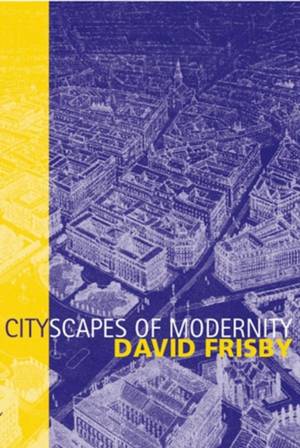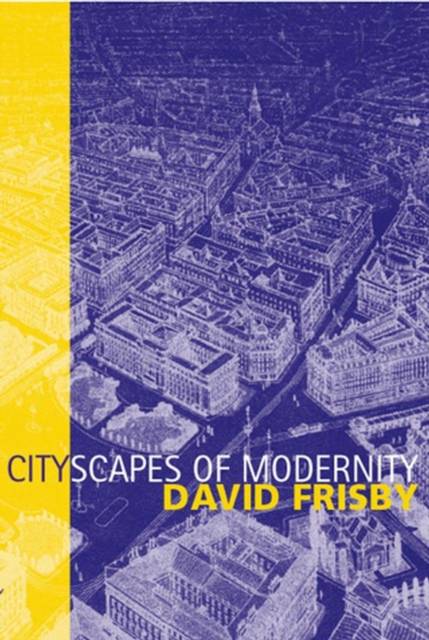
Je cadeautjes zeker op tijd in huis hebben voor de feestdagen? Kom langs in onze winkels en vind het perfecte geschenk!
- Afhalen na 1 uur in een winkel met voorraad
- Gratis thuislevering in België vanaf € 30
- Ruim aanbod met 7 miljoen producten
Je cadeautjes zeker op tijd in huis hebben voor de feestdagen? Kom langs in onze winkels en vind het perfecte geschenk!
- Afhalen na 1 uur in een winkel met voorraad
- Gratis thuislevering in België vanaf € 30
- Ruim aanbod met 7 miljoen producten
Zoeken
Omschrijving
The modern metropolis has been one of the crucial sites for the exploration of modernity since at least the mid-nineteenth century. In this new volume, David Frisby provides an original and critical examination of the construction and experience of metropolitan modernity.
Drawing on a rich variety of sources, Frisby seeks to reveal some key features of metropolitan experience in modernity. Among the issues examined are Benjamin's account of the flaneur and its relevance for social investigation and urban detection; Simmel's influential essay on the metropolis; contrasting interpretations of fin-de-siecle Berlin and Vienna by Sombart; the work of Otto Wagner; and the response to the modern metropolis as highlighted in German Expressionism and Weimar Berlin.
Cityscapes of Modernity will be a valuable text for students of sociology, social theory, urban theory, cultural studies and architectural history, as well as all those interested in the urban culture of modernity.
Drawing on a rich variety of sources, Frisby seeks to reveal some key features of metropolitan experience in modernity. Among the issues examined are Benjamin's account of the flaneur and its relevance for social investigation and urban detection; Simmel's influential essay on the metropolis; contrasting interpretations of fin-de-siecle Berlin and Vienna by Sombart; the work of Otto Wagner; and the response to the modern metropolis as highlighted in German Expressionism and Weimar Berlin.
Cityscapes of Modernity will be a valuable text for students of sociology, social theory, urban theory, cultural studies and architectural history, as well as all those interested in the urban culture of modernity.
Specificaties
Betrokkenen
- Auteur(s):
- Uitgeverij:
Inhoud
- Aantal bladzijden:
- 392
- Taal:
- Engels
Eigenschappen
- Productcode (EAN):
- 9780745626253
- Verschijningsdatum:
- 21/12/2001
- Uitvoering:
- Paperback
- Formaat:
- Trade paperback (VS)
- Afmetingen:
- 151 mm x 231 mm
- Gewicht:
- 571 g

Alleen bij Standaard Boekhandel
+ 126 punten op je klantenkaart van Standaard Boekhandel
Beoordelingen
We publiceren alleen reviews die voldoen aan de voorwaarden voor reviews. Bekijk onze voorwaarden voor reviews.









